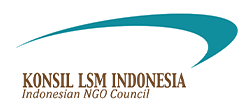Salah satu hasil utama yang dicapai dalam satu tahun ini adalah dirampungkannya framework akuntabilitas LSM yang merupakan dokumen penting bagi Konsil untuk mencapai visi LSM yang sehat yakni LSM yang menerapkan prinsip-prinsip akuntabilitas dalam organisasinya. Sebagai lembaga nasional yang mengembangkan inisiatif dan mempromosikan penerapan akuntabilitas dan transparansi Organisasi Masyarakat Sipil, terutama LSM maka memiliki sebuah framework yang komprehensif dan aplikatif tentang akuntabilitas LSM di Indonesia adalah sebuah keharusan.
Proses penyusunan framework ini telah melalui proses pembahasan yang melibatkan banyak pihak, diantaranya: komunitas LSM ditingkat nasional dan daerah, akademisi, praktisi hukum, peneliti dan masyarakat. Selain itu, hasil assessment tingkat akuntabilitas anggota Konsil di 15 Provinsi pada tahun 2012 merupakan referensi penting dalam penyusunan framework ini.
Framework ini juga dikembangkan berdasarkan kajian terhadap berbagai tools akuntabilitas LSM yang sudah ada yakni : Transparansi dan Akuntabilitas NGO (TANGO), Pedoman Prilaku Konsorsium Pengembangan Masyarakat Madani (KPMM), Australian Council for International Development (ACFID), Humanity Accountability Project Standard (HAP Standart), dan OXFAM GB.
Diharapkan framework ini kualitasnya setara dengan framework akuntabilitas LSM yang sudah dikembangkan oleh beberapa Organisasi di dunia dan yang paling penting lagi framework ini dapat diterima dan dijadikan acuan oleh seluruh komunitas LSM Indonesia yang berkomitmen meningkatkan akuntabilitasnya. Unduh Laporan Lengkap
One of the key results achieved in the past year is the completion of the NGO accountability framework, an important document for Konsil to make real its vision of becoming a robust NGO that consistently applies the principles of accountability across its organization. As a national institution that develops initiatives and promotes accountability and transparency among civil society organizations, specifically NGOs, having a comprehensive and applicable NGO accountability framework in Indonesia becomes a prerequisite.
The formulation of this framework has undergone a discussion process involving multiple parties, inter alia, national and local NGOs, the academia, legal practitioners, researchers and the public. Furthermore, assessment results on the level of accountability among Konsil members in 15 provinces in 2012 have significantly informed the formulation of this framework, in addition to other reviews on existing NGO accountability instruments such as NGO Transparency and Accountability (TANGO), Code of Conduct of the Civil Society Development Consortium (KPMM), Australian Council for International Development (ACFID), Humanity Accountability Project Standard (HAP Standard) and OXFAM GB.
The quality of this framework is expected to be on par with other available frameworks developed by several international organizations, but more importantly it should be acceptable to the Indonesian NGO community with the commitment to adopt the framework in order to improve accountability. An important lesson drawn from the formulation of the framework is the need to be meticulous and cautious in developing standard indicators for NGO accountability that should take into account the specific context and distinctiveness of NGOs as an organization, and also to make sure that they do not undermine efforts to strengthen CSOs.
It is also necessary to ensure that the framework does not only work in favor of large and well-established NGOs, but should also be equally appropriate for smaller NGOs, as well as newly established or less developed ones that demonstrate unswerving commitment and remarkable integrity. Based on this understanding, several indicators that were less significant in instruments developed earlier have now been omitted. Marijana Trivunovic pointed this matter out in one of her publications, stating the need to remain cautious and consider possible unintended negative consequences when developing an NGO accountability system.
Download Full Report.






